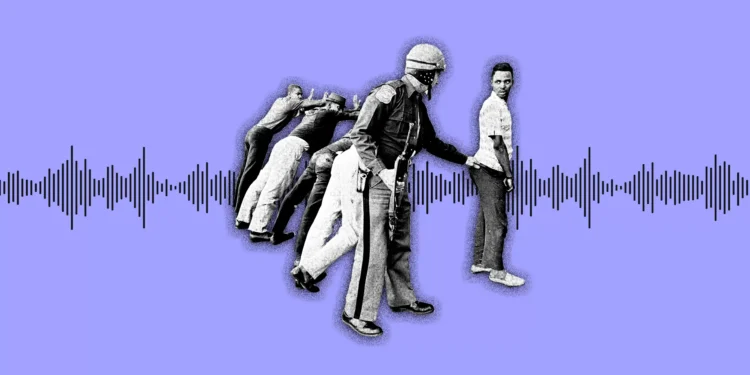Decades of Denial: Policing’s Past Haunts the Present
The year was 1967. The United States was in the midst of a civil rights movement, with protests and demonstrations calling for an end to racial discrimination and police brutality. In response, President Lyndon B. Johnson established the Kerner Commission to investigate the root causes of the unrest.
The commission, led by Governor Otto Kerner Jr. of Illinois, was tasked with examining the underlying issues that led to the widespread protests and violence. After months of research and interviews, the commission released its findings in the Kerner Report, which concluded that “our nation is moving toward two societies, one black, one white – separate and unequal.”
The report highlighted the systemic racism and discrimination that plagued the country, particularly in regards to policing. It called for sweeping reforms to address the root causes of racial inequality and police brutality. However, despite the report’s recommendations, little was done to address these issues.
Fast forward to 2020, and the United States is once again facing a reckoning with policing. The brutal murder of George Floyd by a police officer in Minneapolis sparked nationwide protests and reignited the conversation about systemic racism and police brutality. But this time, the conversation has reached a new level, with people from all walks of life demanding real change.
Rick Loessberg and Akela Lacy, in their article for The Intercept, trace the trajectory of America’s unfinished reckoning with policing, from the Kerner Report to the George Floyd protests to the current state of policing under the Trump administration.
They highlight how the Kerner Report’s findings and recommendations were largely ignored, leading to decades of denial and inaction. This denial has allowed for the perpetuation of systemic racism and police brutality, resulting in the deaths of countless Black Americans at the hands of law enforcement.
The authors also shed light on the current state of policing, which has only worsened under the Trump administration. The president has consistently shown support for law enforcement, even in cases where officers have been accused of excessive force or misconduct. This has only served to further divide the country and hinder progress towards meaningful reform.
But despite the challenges, the George Floyd protests have brought about a renewed sense of urgency and determination to address the issues of systemic racism and police brutality. People from all backgrounds have come together to demand change and hold those in power accountable.
The authors also highlight the role of technology and social media in amplifying the voices of those fighting for justice. The widespread use of smartphones and social media has allowed for the documentation and dissemination of instances of police brutality, bringing attention to the issue and forcing it into the national conversation.
The article also delves into the various proposals for police reform, such as defunding or abolishing the police, as well as implementing community-based alternatives to traditional law enforcement. These proposals have sparked heated debates, but they all share a common goal – to address the root causes of systemic racism and police brutality.
In conclusion, the unfinished reckoning with policing in America is a result of decades of denial and inaction. But the current moment presents an opportunity for real change. The George Floyd protests have brought the issue to the forefront, and people are demanding accountability and meaningful reform. It is time for the country to finally confront its past and work towards a more just and equitable future for all. As the authors aptly put it, “the past haunts the present, but it doesn’t have to dictate the future.” It is up to all of us to ensure that the future is one of equality and justice for all.






